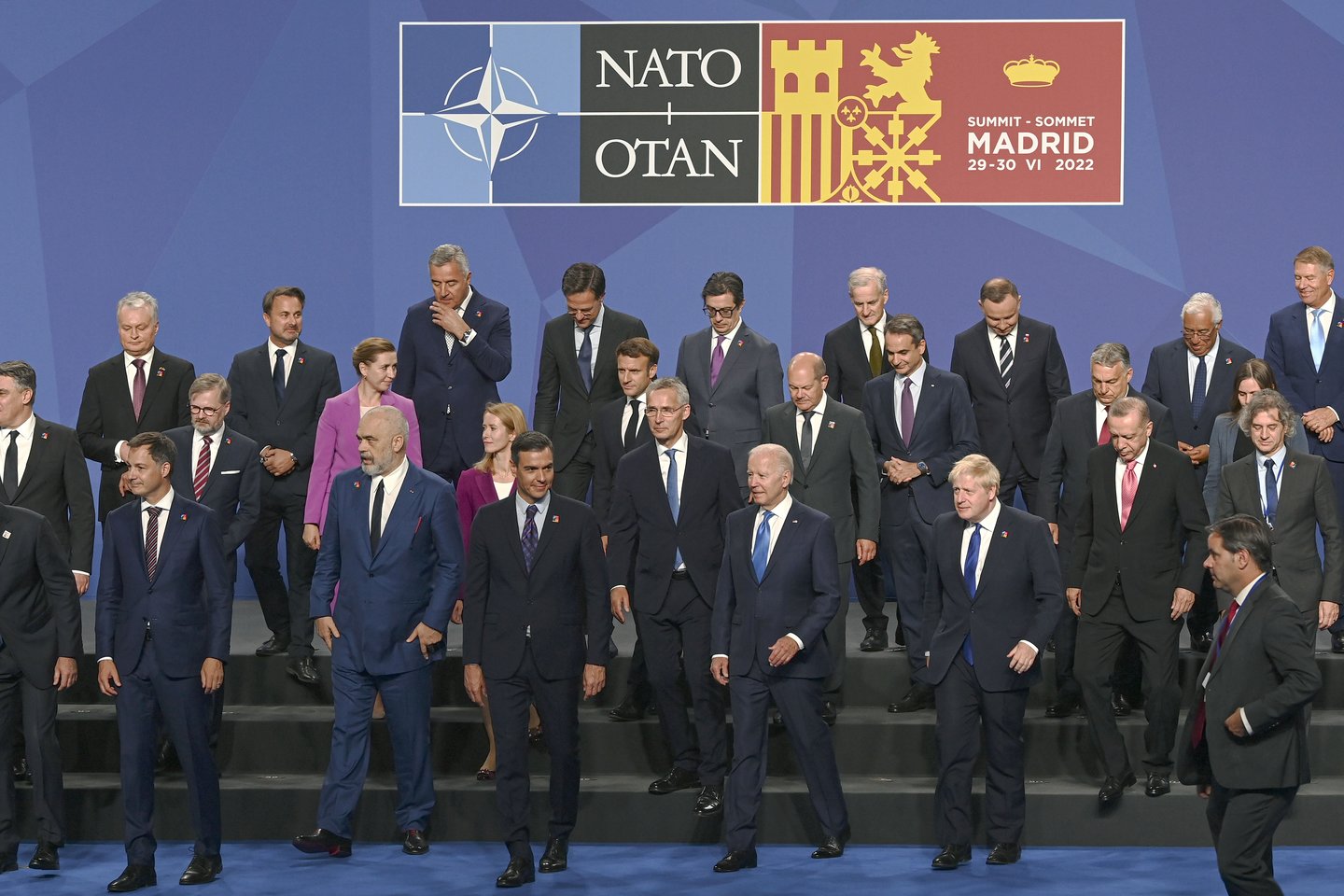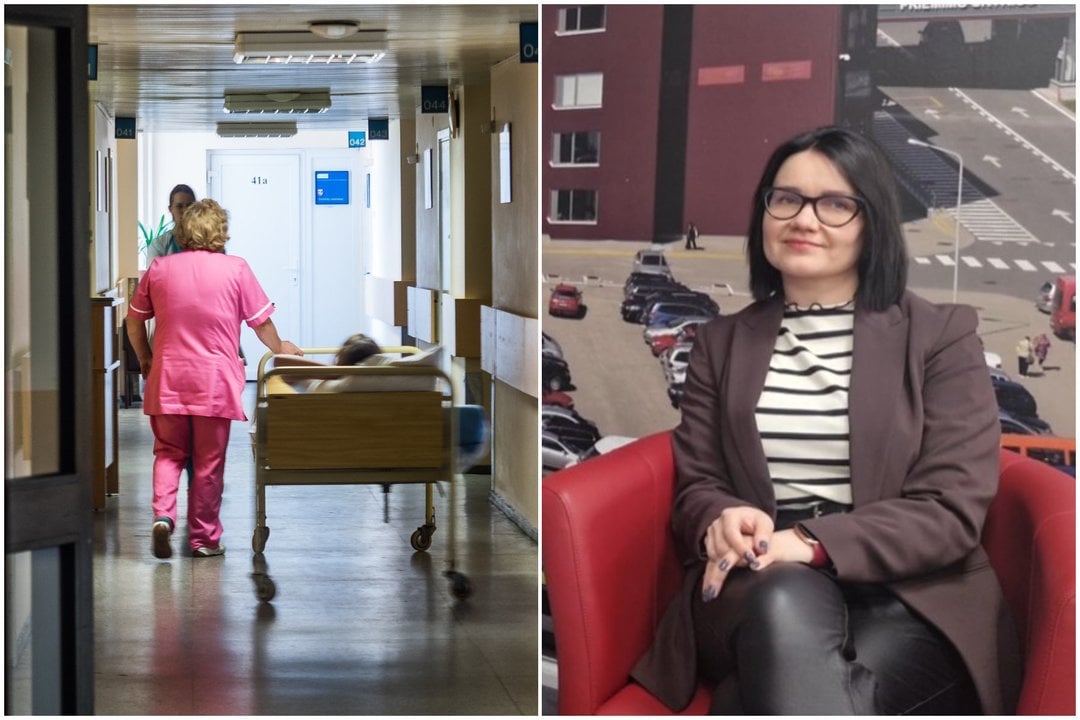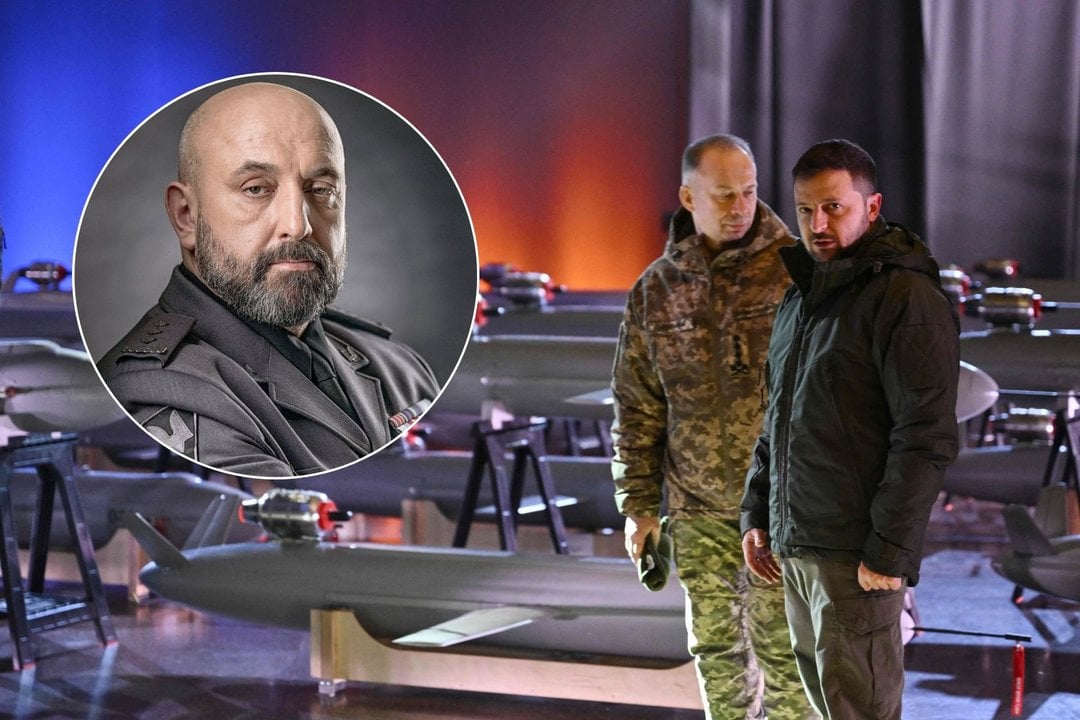The political analyst summarised what the NATO member states were able to agree on at the NATO summit on Tuesday and Wednesday.
Key achievements
„NATO allies agreed to deploy more forces on NATO's eastern flank. We have seen this process since the 24th of February, but now it will take a strategic level of decision, which will then be put into practice,“ said Kojala during a live webcast on his Facebook account.
According to him, Germany is ready to increase its forces in Lithuania up to the brigade level.
„Of course, it will take time, both for Germany to acquire the new capability, which will cost around €100 billion, and for Lithuania to do its homework, which will also be expensive and time-consuming, in order to be able to host a brigade,“ the political analyst noted.
According to Mr Kojala, it was agreed at the NATO level to send arms and ammunition to the Eastern flank of the Alliance in advance.
„For the first time since the Cold War, we will have not only defence plans but also specific functions in the defence plans linked to capabilities. It will not only be a commitment that depends on circumstances, but there will be countries, capabilities assigned to regions that understand their responsibilities, understand the geography of the situation, and can be put into practice very quickly,“ he underlined.
According to the political analyst, the brigade assigned to Lithuania will not be fully deployed in the country at once but will train there, get to know the security situation in Lithuania, and cooperate with the country's military forces.
Alongside these decisions is the formal invitation by NATO leaders to Finland and Sweden to join the Alliance.
„The negotiation process is about to start – Sweden and Finland will negotiate with NATO, but no one doubts that the negotiation process will be very fast, as both countries are working closely with NATO and meet the NATO criteria. This means that the negotiations are a technical matter.
The more complex political issue will be the ratification of membership by the 30 parliaments of NATO countries. This is where the national subtleties come in, and even if there are no major objections to this decision, it will still take time.
Some speculate that the ratification process could take between 4 and 12 months“, the political analyst said.
The impact of the Estonian Prime Minister's words
Kojala also assessed how Estonian Prime Minister Kaja Kallas's words on NATO capabilities had been reflected in the latest decisions of the Alliance leaders.
Estonian PM Kallas said that the current NATO defence plans would not prevent Estonia from being wiped off the map, as they foresee the conquest of the Baltic States, which would be followed by a 180-day conquest.
„The defence plans are not public, but it should not be assumed that they say that NATO „agrees“ to lose the first battles to any aggressor, let them in, and then look for a way to liberate that NATO state.
No – the Estonian Prime Minister was probably referring mainly to the fact that NATO would not have sufficient defensive capabilities in the face of such aggression to react very quickly and effectively to the changed circumstances.
That is what the representatives of the Baltic countries, and also Poland, wanted, first of all, to see a larger force deployed here. Not just numbers, but real defence systems, including air defence, and we should see a steady increase in those forces because a brigade is not a ceiling but rather an intermediate achievement.
That was probably the main point of the Estonian Prime Minister, and it was very deliberate, in the run-up to the NATO summit, in the hope that it would lead to favourable decisions. I think that from what we can sense from the Baltic representatives here in Madrid, they are satisfied with what has been agreed“, said Kojala.
However, some uncertainties still remain, according to Kojala.
„There is some uncertainty, or lack of detail, about the involvement of the United States in the Baltic defence systems. We have deployed US forces, and they are rotational.
The Biden administration reiterated today that the capacity is being increased on a rotational basis, but there are no clear details yet. There is no doubt that the Americans will be a very important addition to what the Germans and other NATO countries will be doing in terms of growing the battalion to brigade level.
Without the Americans, of course, we can hardly see our defence as effective, and here they are going to increase their commitment. In particular, they will do so in Poland, where it looks like they will create additional permanent headquarters,“ Kojala said.
„There are many positive signals for Lithuania, but this does not mean that all the region's security problems have been solved – Lithuania will have to do its own homework and continue to invest significant amounts of money to make us feel as secure as possible,“ the political analyst concluded.




